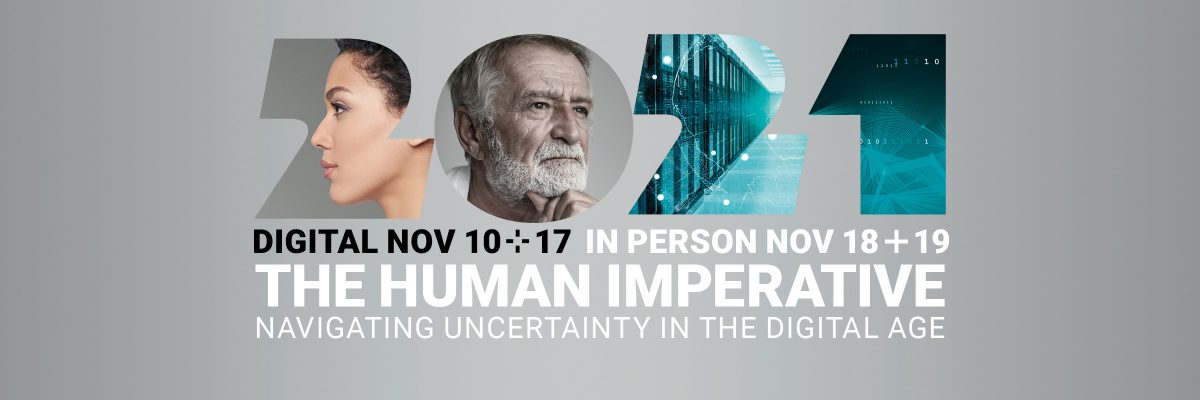
When James F Moore published his seminal The Death of Competition in 1996, he described being asked by several business executives ‘how they could increase their capacity to cope in a corporate world where change showed no signs of slowing down’.
Much of the strategic guidance offered by the book still holds weight, but what we’re still seeing is the need for a profound management shift. Fast forward to 2019 and executives are still asking the same questions.
Drucker Forum 2019
Competition is so fierce that ecosystems have evolved to the point where delivering value creation for the customer is central to businesses winning or losing. As Moore notes, better tools are needed for business development and market creation. However, these tools, such as coaching, are not always being deployed because some bosses are too scared to let go of the reins.
As we move into the digital economy, the biggest challenge facing organisations is not from technology, but from workplace culture and the need for managers to adopt new ways of leading.
A recent Harvard Business Review article argues that an alternative to the command-and-control style of leadership has failed to emerge. It highlights leadership research carried out by MIT analysing how two long-established companies have identified and adapted three leadership styles, described as ‘entrepreneurial’, ‘enabling’ and ‘architecting’.
Investigating the role each plays in the organisation’s performance, it identified ‘a shared belief that leadership should rest with whoever is best positioned to exercise it, regardless of title’.
In organisations run on such a collective leadership footing, coaching becomes a major element in cultural and organisational design. A coaching approach is favoured by many high-performing businesses that understand its contribution in managing change and developing competitive advantage.
Traditional coaching has emerged as a key tool and talent where leaders are equipped with coaching skills for everyday use. Under their influence, cultures become more open and employees gain the space, time and support to overcome self-limiting beliefs, free up their imagination and maximise their potential.
In the age of automation, companies must rely more on their employees’ innate human qualities such as lateral thinking and creativity to unlock performance. Liberating our people creates new knowledge and gives the capability to lift entire organisations and enable leaders to cope in volatile environments.
In our new sharing economy, where individuals, businesses, services and products are more connected than ever, there is no room for isolation at the top of business. Purpose, values and the importance of community and wider society are becoming ever more fundamental in their influence on ecosystems.
Business leaders’ own ecosystems will need to better serve the wider world; and a systemic approach to management where all the connections are coached will be crucial if organisations are to continue innovating and creating best value for stakeholders. Our leaders need self-awareness, commitment, humility, trust and purpose to enable their workforces and ecosystems to work for the greater good of all.
Perhaps it’s fitting to give Moore the last word: “We need a range of voices – a diversity of inputs – and the skills to listen, appreciate and respect each other.’’
About the Author:
Gina Lodge is CEO of the Academy of Executive Coaching. She has more than 20 years’ experience in management and is an accredited executive coach
This article is one in the Drucker Forum “shape the debate” series relating to the 11th Global Peter Drucker Forum, under the theme “The Power of Ecosystems”, taking place on November 21-22, 2019 in Vienna, Austria #GPDF19 #ecosystems

